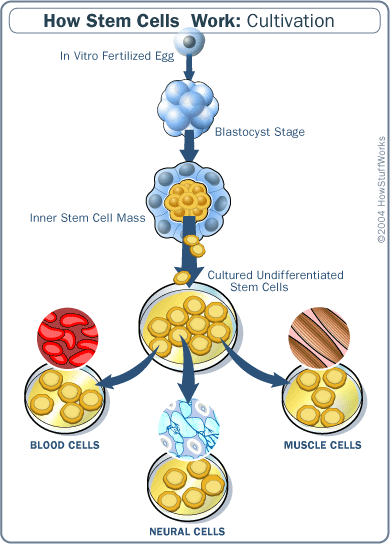Cell Differentiation
Introduction
Totipotent
Pluripotent
Unipotent
How stem cells work
Introduction
All of the cells in your body, every single last cell, can be traced back to just a single cell (the fertilised egg a.k.a. zygote), and a single DNA code. How is it possible for hundreds of different cell types to arise from that? The zygote undergoes mitosis, and according to that, all daughter cells resulting are genetically identical. Therefore, all cells in our body must be genetically identical. Well, they are*. So how do all these supposed “clone cells” end up being so different from one another, and hence achieve such different purposes within the larger organism?
Types of stem cells
They differentiate due to selected genes becoming active in certain cells but not others. The initial cells from which others can differentiate are called stem cells. These can be totipotent, pluripotent or unipotent. Totipotent stem cells have the ability to differentiate into any type of cell. Pluripotent stem cells are descendants of totipotent stem cells, and can differentiate into many different kinds of cell, but not all. Unipotent stem cells can only replicate themselves, and so produce just one type of cell.
The genes active in cells determine whether they are skin cells, heart muscle cells, neurons, lung cell ect.

